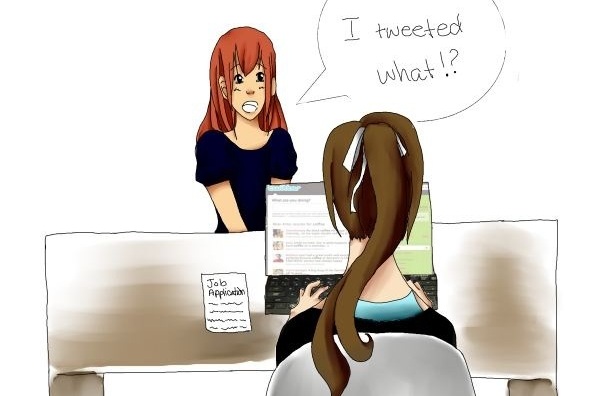The phrase “think before you speak” needs a modern update. “Think before you tweet,” or “think before you post a status,” or “think before you blog” are just a few things that need to be pounded into the minds of young people with Internet access. This needs to be done soon, because the generation of instant gratification is going to get a nasty wake-up call in about a decade.
People are too quick to share their information with the world and too slow to think of the repercussions of sharing such information. I’m not talking about the average tweet about a funny experience or Instagram post of your breakfast. What I am talking about is the tweet about getting wasted last weekend when you’re underage or the Instagram post of drugs.
Despite clicking the delete button, what you put on the Internet exists forever. Whether one of your “friends” took a screen shot of your incriminating post or your information is on a website’s servers, what you post on the Internet can always come back to haunt you.
According to a survey done by Kaplan 76 percent of the top 500 colleges and universities use Twitter for recruiting purposes. Eighty seven percent check Facebook. This means that it’s time to untag yourself from all of the pictures that have a beer bottle in your hand because the black bar that stops you from getting in trouble at school won’t stop the college recruiter from rejecting you. Thirty five percent of recruiters discovered something online that negatively impacted a student’s application.
In the not too distant future, we’re going to start applying for jobs. According to a survey by CareerBuilder, two out of five companies use social networking sites to research job candidates. In 49 percent of cases, the chances of a candidate getting the job was hurt by inappropriate info found online and in 45 percent the chances were hurt by info found online about drinking and drugs.
People in our generation need to learn to keep certain things to themselves now so that their future is not negatively impacted.
Young people need to take a cautionary tale from the likes of Representative Anthony Weiner, who tweeted an inappropriate picture and ended up resigning from Congress. Our dependence on sharing everything, good and bad, has erupted in the Steubenville, Ohio case of a girl who was raped. Her attackers incriminated themselves through tweets, Facebook statuses, and videos.
The Steubenville case is an incident in which lack of privacy is actually a good thing. However, years from now, or even months for high school seniors, social media may be a curse. It may seem “cool” now to share your illicit activities on the internet, but repercussions for such actions can occur far into the future.
Chioma Iheoma is an Opinion Editor for The Patriot and jcpatriot.com.



